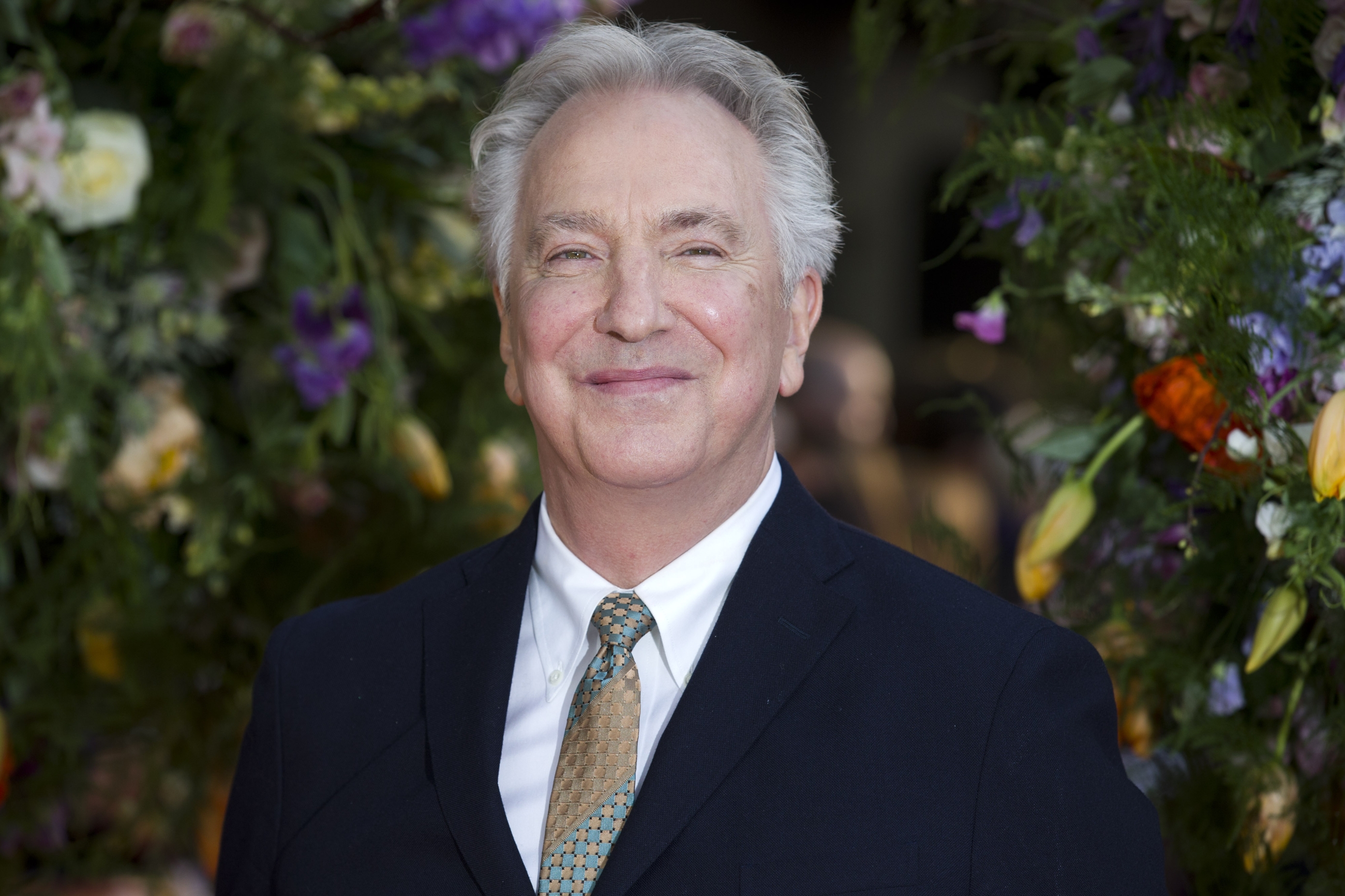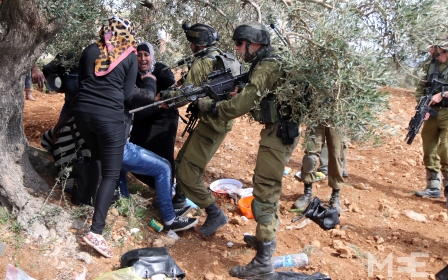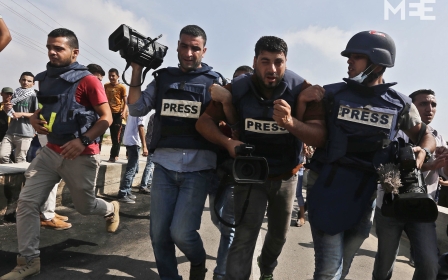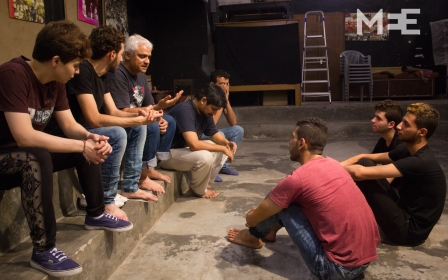Alan Rickman: A director who brought us a clarion voice from Gaza

When 23-year-old American Rachel Corrie arrived at Rafah in southern Gaza in early 2003 her diaries and emails home immediately reflected her intense human reaction to the Palestinian families whose homes she stayed in overnight as one of the internationalists who were trying to prevent their demolition by the Israeli army.
This International Solidarity Movement experience was what she had left her peaceful home in Washington state in search of. “People [are] offering themselves as human shields in Palestine and I [am] spending all of my time making dove costumes and giant puppets… I’ve had this underlying need to go to a place and meet people who are on the other end of the portion of my tax money that goes to fund the US and other militaries.”
The news film footage which showed the Israeli military bulldozer inexorably mowing down this vulnerable young woman in her bright protective vest was unbearable viewing, and unforgettable. And when Rachel’s emails began to be published in the Guardian after her death they sparked the actor/director Alan Rickman into going to the Royal Court theatre with the paper in his hand and proposing they should be made into a play, which he would direct.
With his immense stature in the theatre world there was no doubt the project could be done and would succeed, and he brought in the experienced journalist Katherine Viner, now editor in chief of the Guardian, as his collaborator.
My Name is Rachel Corrie, directed by Rickman and with Rachel brilliantly played by Megan Dodds, was a stunning story of a vivid, questioning, brave young woman. The play is all Rachel’s intense words, and some from her parents’ loving, anxious emails.
It melted audiences into tears night after night at the Royal Court theatre in London in 2005. One night I watched it with Rachel’s parents and other relatives of hers in the audience and saw most of us frozen in our seats with empathy for their unimaginable horror, as they were quietly led out at the end.
The play was an unexpectedly great success and had two runs at the Royal Court, transferred to London’s West End, and was shown on every continent except Antartica, in more than a dozen languages. But when in 2006 a transfer to the US was abruptly “indefinitely postponed” by the New York Theatre Workshop, Rickman's political courage went on show.
He denounced the decision, saying, “I can only guess at the pressure of funding an independent theatre company in New York, but calling this production 'postponed' does not disguise the fact that it has been cancelled. This is censorship born out of fear, and the New York Theatre Workshop, the Royal Court, New York audiences - all of us are the losers.” (The play was later staged in another New York theatre.)
Verbatim theatre is always political theatre and it has a particular chance of catching public attention and rousing emotion - hence the banning in this case, and a heightened debate about the play’s subject. It could not have been easy for Rickman to find himself at the centre of some vicious reactions, but he was magisterial in his response. Rachel’s voice, he said, “whether you are sympathetic with her or not, is like a clarion in the fog and deserves to be heard.”
Rickman’s role in making that voice heard was definitive. The play was a catalyst and a multiplier - without it there would be no Rachel Corrie Street in Nablus or Tehran or symbolic gravestone in Tehran, no ship the MC Rachel Corrie sailing to Gaza to try (unsuccessfully) to break the siege, no movies, no vigils and murals, no cantata The Skies are Weeping composed by the Alaska composer, Philip Munger, forced to be withdrawn, but finally played in the Hackney Empire theatre in London.
When Rickman’s death was announced last week Rana Baker, a PhD student from Gaza, now in the US, responded immediately. “I certainly didn't think about Harry Potter or Robin Hood movies. The first thing that came to mind was that this was the person who did so much to keep Rachel’s legacy alive.
"At home Rachel is remembered as a person who actually participated in resistance to violence, rather than just watched and wrote empty reports. I think this is why she is remembered so fondly and why people in Gaza quickly know who you are talking about when her name is mentioned. Of course not everyone at home knows about the play, but those who do know it most certainly appreciate Rickman’s work and what it has done to keep alive Rachel’s legacy which is of true solidarity, not just big mouth talk.”
Rachel’s parents, Craig and Cindy Corrie, who were previously not closely in touch with Palestinian matters, have spent a decade fighting the Israeli government and military for justice for the driver of the military bulldozer which ran her over once and went over her a second time. Their lives were completely refocused by Rachel’s death, and by what she tried to do in her life - protect Palestinians, and witness by her prolific writings.
Predictably an Israeli judge in 2012 found Rachel’s death to have been a “regrettable accident” for which the state was not responsible because it was in a war situation. He rejected the civil suit by the family and denied damages. An appeal was later denied. All major human rights organisations such as Amnesty International and Human Rights Watch have rejected the Israeli courts’ findings.
The situation in Gaza today is very different from what so moved Rachel all those years ago - it is now infinitely worse. Had she lived it is easy to imagine how she would have continued to write, to try to protect, to bear witness to what so outraged and bewildered her.
Since then there have been three major Israeli army offensives, which have demolished thousands of buildings, homes, hospitals, businesses, and infrastructure in Operation Cast Lead 2008-9, Operation Pillar of Defense 2012, and Operation Protective Edge 2014. Thousands of civilians have been killed.
Great, historic figures in Gaza like Haider Abdel Shafi and Dr Eyad al Saraj have died, political leaders like Sheikh Ahmed Yassin and Abdelaziz Rantissi and countless others have been killed by the IDF.
Rachel, like the young British ISM volunteer Tom Hurndall, who was killed by the IDF in almost the same place a month after her death, were bent on protecting children in particular. The names of Gaza’s most recent child victims that their families were not able to protect are names she would have wanted forced into general knowledge: Marwan Hashem Barbakh, aged 10, Khalil Omar Othman, aged 18, Rahaf Hassan, aged three, were killed in Gaza by Israeli gunshot wounds to the chest or an Israeli air strike on their home late in 2015.
Rachel’s father, Craig Corrie, wrote this week of his family’s appreciation of Alan Rickman’s gift to his late daughter to whom he was “a great friend” although they never met in person. “It is not the wide attention to her writing which has been the greatest gift to our daughter… but capturing Rachel’s energy, her humour and her ability to question herself, as well as her world. For those who did not know Rachel but only knew of her, the play gave back to my daughter her humanity - no small achievement.”
New MEE newsletter: Jerusalem Dispatch
Sign up to get the latest insights and analysis on Israel-Palestine, alongside Turkey Unpacked and other MEE newsletters
Middle East Eye delivers independent and unrivalled coverage and analysis of the Middle East, North Africa and beyond. To learn more about republishing this content and the associated fees, please fill out this form. More about MEE can be found here.




